Last fall’s mid-term elections showed just how far Democrats must go to convince the public that their party is best able to manage government. Voters clearly felt more comfortable with George W. Bush’s camp in charge.
Before the election, the Democratic Party had shed its image as the tax-and-spend party. Eight years of relentless downsizing under Vice President Al Gore proved that Democrats can cut jobs as effectively as “Chainsaw Al” Dunlop, former CEO of Sunbeam, and “Neutron Jack” Welch, who ran GE. It hardly mattered that many of the jobs ended up in the private sector under federal contracts. Nor did it matter that downsizing during the Clinton administration carved huge gaps in the federal government’s productivity and effectiveness.
The strategy worked miracles. Democrats talked tough enough about reinvention and the end of the era of big government to saw into the Republican Party’s once-formidable reputation as the party of businesslike management. In August 1995, for example, the Republicans held a 19 percent edge as the party best able to manage government. By last spring, that edge had been cut to just 5 percent.
The gains meant nothing on Election Day. The president’s approval ratings as commander-in-chief overwhelmed any inclination to give Democrats greater control.
Even Democrats raised doubts about their ability to make tough choices in last year’s homeland security stalemate. Despite their worries that a 22-agency, 200,000-employee department might be too expansive to succeed, Senate Democrats instantly acquiesced to the president’s blueprint when it came barreling over from the House in July. Instead, they decided to fight the president’s request for greater flexibility in the government’s hopelessly outmoded civil service system. If the system is good enough for the Housing and Urban Development Department, Democrats said, it’s good enough for the Homeland Security Department.
Americans don’t believe the system works. Most think federal employees chose their government jobs for the pay, benefits and job security, not the chance to help people, make a difference or accomplish something worthwhile. Most also think federal employees could do a better job. According to a June survey by the Brookings Institution’s Center for Public Service, Americans estimate that almost half of federal employees are not doing their jobs well.
Even federal employees know the system is broken. Most of those surveyed by the center for Public Service over the past few years have admitted they chose government work for the pay, benefits and job security. About 40 percent say they still come to work every day for the compensation.
Government employees also say their personnel system is mediocre in terms of hiring and disciplining co-workers. More than 75 percent of those surveyed have said the hiring process is slow. The same percentage of workers has said the system is confusing, and 25 percent called the system unfair. In contrast, private sector employees surveyed have said not only that their hiring process is fast and simple, 90 percent said it is fair. So much for merit at the expense of efficiency.
Federal workers acknowledge they have plenty of poor performers in their midst. About 75 percent of those surveyed have said their organizations do an inadequate job of disciplining poor performers, and most believe that the annual employee appraisal system is a hyperinflated charade. Of the 700,000 federal employees who were rated under a pass/fail system last year, only .06 percent failed. In fact, employees surveyed have estimated that 22 percent of their co-workers fail to do their jobs well.
By defending the civil service system as “good enough for government work,” Democrats not only defined themselves as advocates of the status quo, they abrogated their responsibility for the front lines of government. It is the lower- and mid-level workers, not senior executives, who have said the system denies them the resources and training to succeed, buries them under layers of needless review, and fails in recruiting and keeping talented people.
Much as it prides itself on being the party of federal workers, the Democratic Party has become the champion of the mid-level managers and poor performers who thrive in a seniority-based system. Unlike the president, who at least had the courage to take on the system, Democrats continued to defend it until the bitter end, when the homeland security bill passed. They never offered a single idea for helping manage one of the most important workforces in the United States. Nor were the Democrats ready to step forward with proposals for improved working conditions or increased staffing.
If Democrats want to rebuild their reputation as government reformers, they should work with the president on creating a flexible and contemporary personnel system for all federal workers, not just those in the new department. They should ask hard questions about whatever system the president proposes, and be prepared to suggest alternatives. Most of all, Democrats should start listening to the government workers they claim to represent. The people in the trenches are the ones who know it is time to change the civil service. The question is, which party will take the lead.
Paul C. Light is director of the Brookings Institution’s Center for Public Service and a professor at New York University’s Wagner School of Public Service.
The Brookings Institution is committed to quality, independence, and impact.
We are supported by a diverse array of funders. In line with our values and policies, each Brookings publication represents the sole views of its author(s).

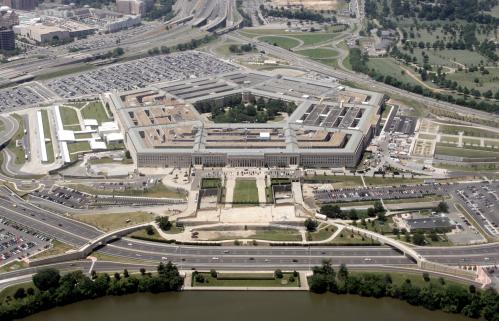
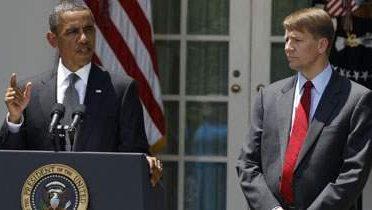
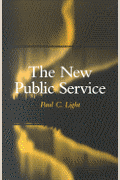
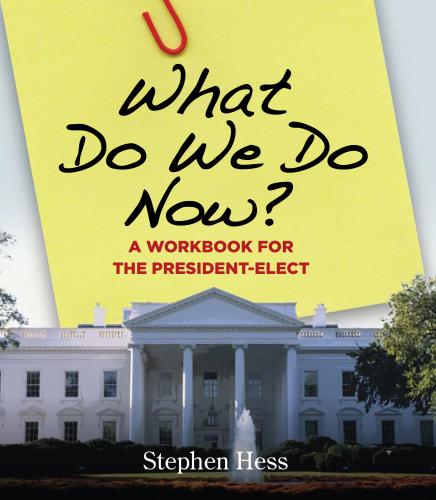
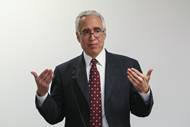



Commentary
Op-edMid-term Meltdown
January 15, 2003